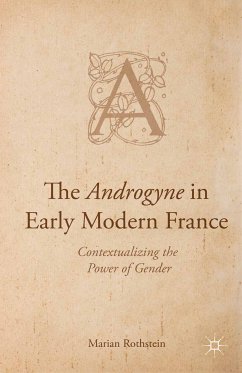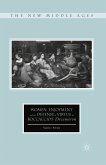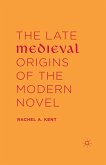Dieser Download kann aus rechtlichen Gründen nur mit Rechnungsadresse in A, B, BG, CY, CZ, D, DK, EW, E, FIN, F, GR, HR, H, IRL, I, LT, L, LR, M, NL, PL, P, R, S, SLO, SK ausgeliefert werden.
"In this volume, Marian Rothstein builds on her earlier article-length investigations of the androgyne myth's use in literary and political environments in early modern France. ... Well written and documented, this work will become a standard for anyone interested in questions of gender in early modern France." (Jeff Kendrick, French Studies, Vol. 70 (4), October, 2016)









